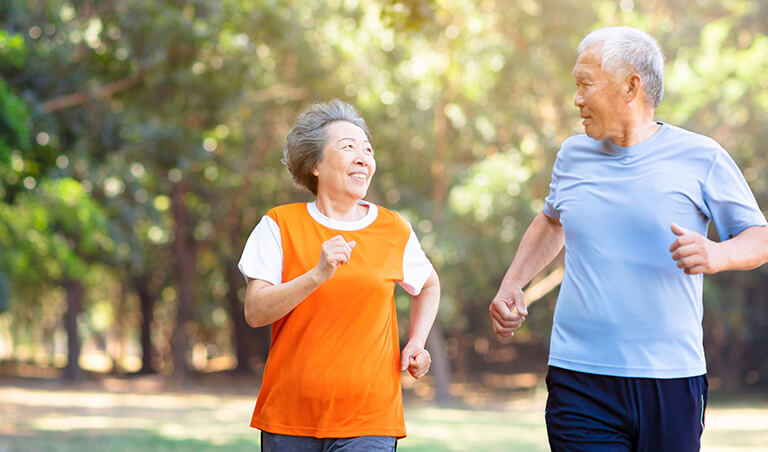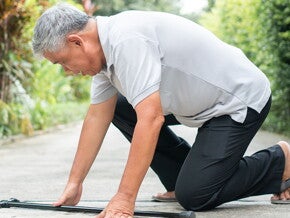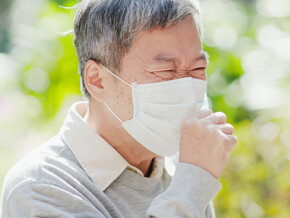
Why I Feel Tired Easily as I Get Older? Blame Age-Related Muscle Loss
As you get older, you won't feel as strong as you used to. You also won't have as much stamina as before.
As you get older, you won't feel as strong as you used to. You also won't have as much stamina as before.
This is because of muscle loss, a natural part of ageing. It involves both the loss of muscle itself and its strength, as well as reduced function of your muscles. And it's something that commonly happens to people over the age of 50.
This phenomenon starts long before retirement age. You lose seven to eight per cent of muscle mass per decade, starting from your 40s1. And once you hit your 70s, this rate increases to 15 per cent in each decade1.
Effects of Age-Related Muscle Loss
A reduction in muscle mass means you'll feel weaker and less mobile. You'll feel tired easily too. It'll also feel more difficult to climb stairs, even lift yourself from a chair. Plus, it affects your balance, which means falls are more common.
While muscle loss is part-and-parcel of the ageing process, certain factors could aggravate it.
These include a sedentary lifestyle, prolonged illness or an unhealthy diet that's high in fat and carbs but low in protein. The risk also increases if you have a disease that leads to inflammation, or one that directly affects your nerves or muscles.
A lowering of hormone levels as you age – testosterone in men and oestrogen in women – affects muscle mass too.

How to Slow Down Age-Related Muscle Loss
While muscle loss can affect your quality of life, there are some things you can do to slow down – or even reverse – this process.
Exercise. As you lose muscle mass, it may be tempting to do less physical activities as moving about becomes more difficult. It's important to keep moving as exercise keeps your muscles active.
Keep your heart rate up by engaging in aerobic exercises. If you feel this is too much for you, or if you're afraid of falling or injuring yourself, try walking instead.
A study of participants in Japan aged 65 and over revealed that walking for six months resulted in increased muscle mass2. Start slow, then pick up the pace and duration of your walks eventually.
Do resistance training. It's good for your health to increase your heart rate, but your muscles benefit more if your exercise regime includes resistance training. Examples include using resistance bands, weightlifting and doing resistance exercises like leg presses.
These exercises increase muscle strength and promote muscle growth and repair. In a study of participants aged 65 to 94, it was shown that doing resistance exercises three times a week over 12 weeks led to an increase in muscle strength3.
Increase your protein intake. Protein is essential to keep muscles healthy as it builds and strengthens muscle tissue. And it plays a larger role as we age. It acts as a building block that stimulates growth in muscles and more protein is needed as we age to increase this muscle growth.
Eggs are your best bet for protein as they're inexpensive to buy and easy to prepare. Fish is a good option too. Go for salmon, mackerel or cod as these are also high in omega-3 fatty acids.
Supplement Your diet.
Enercal Plus is scientifically formulated with 50% whey protein and 50% soy protein. This unique combination works together to support muscle strength, so you can be better prepared against age related muscle loss, and be ready for life in your golden years.
Enercal Plus contains the right mix of caloric distribution as recommended by the American Heart Association – carbohydrates (55 per cent), protein (15 per cent) and fat (30 per cent). Your body will release more energy with a little help from the vitamins B1 and B2 in Enercal Plus, and you may feel less tired and fatigue, thanks to its complement of vitamins and minerals, such as vitamin B6, B12, C, iron and folic acid.
Disclaimer: This content is shared for informational purposes only and not intended to be a substitute for professional/medical advice, diagnosis, or treatment. We recommended that you always seek the advice of your healthcare professional for any questions you may have regarding a medical condition/specific situation.
Reference:
- Paddon-Jones D and Leidy H. Dietary Protein and Muscle in Older Persons. Curr Opin Clin Nutr Metab Care. 2014; 17(1):5-11. https://pubmed.ncbi.nlm.nih.gov/25858281/
- https://pubmed.ncbi.nlm.nih.gov/18852547/


